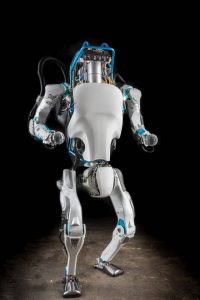 Nowadays, we can observe more about technology’s impact on our lives. Technology is one of the elements that improve human’s life and the planet we live in. From the very first day of 21st century, humans started to use technology by using phones, ipads, laptops, headphones in their daily life. Technology does not mean only this machines which make our lives easier and better. It is undeniable that robots are everywhere. People have begun using robots in so many industries and sectors but is it possible that robots can take human’s job?
Nowadays, we can observe more about technology’s impact on our lives. Technology is one of the elements that improve human’s life and the planet we live in. From the very first day of 21st century, humans started to use technology by using phones, ipads, laptops, headphones in their daily life. Technology does not mean only this machines which make our lives easier and better. It is undeniable that robots are everywhere. People have begun using robots in so many industries and sectors but is it possible that robots can take human’s job?
From my point of view, they will take people’s job in factories. I think robots should take the production part of products and materials and people should work for the creativity and planning of a product. Most of the industries in the world we live in require creative and practical people who are expected to be able to solve any problem quickly. Moreover, ı do not think that robots will take over the world but in order to develop more beneficial products or machines we need robots and human’ creativity. It is stated that robots can take faster than humans. For instance,” a robot called Semi-Automated Mason- created by the New York based Construction Robotics is capable of laying 3,000 bricks per day. SAM can work about 500 percent faster than humans, and discrepancy in labor cost that causes is significant. According to a report by Zero Hedge, 3,000 bricks boils down to a cost of 4.5 cents per brick. Based on a $15 per hour minimum wage rate and benefits, a human bricklayer with an average efficiency of about 500 bricks will cost construction firms about 32 cents per brick — that’s more than 7x the cost of an automated bricklayer. SAM isn’t able to work independently, however. A builder still has to feed the bricks onto its conveyor belt, which will then be picked up by SAM’s robotic arm, slathered with mortar, and placed on the wall. From there, another bricklayer has to follow up SAM’s work by cleaning up excess mortar. This kind of efficiency is emerging amid rising demand for construction services, which means it’s likely only a matter of time before the of technology will undergo mass adoption among construction companies.”
To sum up, robots work in different kinds of industries just like humans do. In the upcoming years or maybe even days we will witness more human-robot combination jobs. With the speed of robots and creativity of humans there will be wonderful products or machines.
References : https://futurism.com/this-robot-works-500-faster-than-humans-and-it-puts-thousands-of-jobs-at-risk

